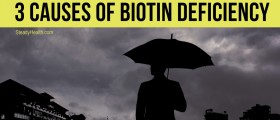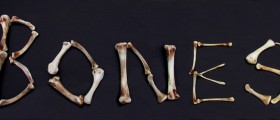
Our body wouldn’t be able to function properly, if there wasn’t any calcium in it. Calcium is a mineral that is needed by our bones, muscles, blood and heart. In normal circumstances our body always has certain reserves of calcium, but there are some conditions that can lead to calcium deficiency. When there isn’t enough calcium in our body, our bones can fracture more easily.
Conditions that cause calcium deficiency
The most common cause is unbalanced diet. Calcium can be found in all products that are made of milk (cheese, yogurt...), and providing out body with theses products is necessary. It is extremely important to take calcium in teenage years, because it is a period of our life when our bones form. However, it can be difficult for people who are lactose intolerant, as the lactose is an inevitable ingredient of milk. People whose body is intolerant to lactose can decrease the chances for developing calcium deficiency by taking supplements that contain calcium.
Low consumption of vitamin D is the main cause of calcium deficiency in people that are over 50. Vitamin D is very important for calcium since it stimulates the absorption of calcium and therefore enables our body to resorb it. Our age is also very important cause for calcium deficiency because older people don’t intake enough calcium. As people get older, they absorb 20-30% less of calcium than they used to when they were young. Kidney disorders cause insufficient amount of calcium in our body, but abnormal parathyroid glands are also one of the causes for calcium deficiency. If this gland isn’t functioning properly, then our body can’t take calcium from bones, which leads to calcium deficiency.
Women with certain conditions are at risk of losing calcium, especially women that have lost a lot of weight or those who are not having their menstruation, because in these cases, calcium exits their body. The same rule applies to athletes who went too far with exercising and are not eating enough. Women who don’t have any more their menstrual periods have a predisposition of calcium deficiency because their hormone estrogen is decreasing, and in that case it is much more difficult for calcium to stay in the body. The treatment for that is a hormone therapy that consists of increasing the level of estrogen. In that way calcium deficiency can be stopped.
Symptoms
Symptoms that may indicate calcium deficiency in cases that are not so severe include tiredness and poor blood circulation. It is important to start the treatment of calcium deficiency at an early stage, when the amounts of calcium deficiency are small, because if left neglected, it can lead to fatal outcome.

















Your thoughts on this
Loading...